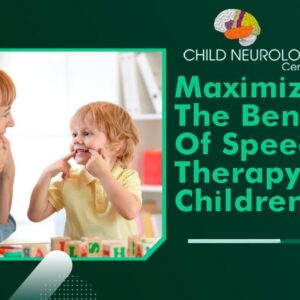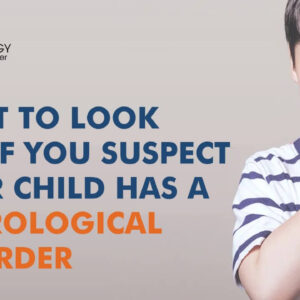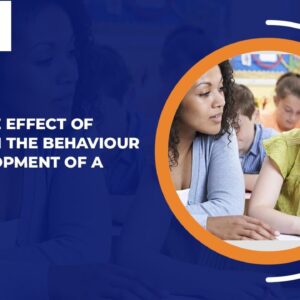Autism Spectrum Disorder (ASD), commonly referred to as autism, is a complex neurodevelopmental condition that profoundly impacts individuals’ lives. Recognizing the signs of autism in your child at an early stage is essential for providing the necessary support and interventions. In this blog, we will be discussing the complex world of autism, exploring its common...
Author: child-neurology
Maximizing The Benefits Of Speech Therapy For Children
What is Speech Therapy? Do you have a child who needs speech therapy? Is your child having trouble with communication skills or engaging in troubling behaviors? Speech therapy, also known as speech-language pathology, can be a powerful tool in helping children enhance their communication skills and improve their behavior. This article will explore the many...
What are the qualities of a good child neurologist?
A child neurologist is a medical professional who specializes in treating children’s neurological disorders. They are trained to diagnose and treat various conditions, including seizures, cerebral palsy, developmental delays, and other neurological disorders. They work closely with parents and caregivers to provide comprehensive care for their young patients. An effective child neurologist must possess certain...
Stop worrying and start following these tips to find the best child neurologist for the childcare
Nothing can give you more pleasure than the voice of your new-born while he or she screams and calls you as dad or mom. Likewise, the new-born’s health issues should be diagnosed by a professional specialist doctor. Your child may suffer from neurological disorders like autism, cerebral palsy, or ADHD. The disease should be cured...
Why do you need to see a child neurologist?
Like other medical specialists, neurologists treat disorders related to the nervous system. All the disorders are related to the brain, spinal cord, muscles, and other body parts within the central nervous system. Nervous systems manage communication in the brain and body; this helps the human body to perform everyday functions. If there is a lack...
What to Look For If You Suspect Your Child Has a Neurological Disorder
In case of a neurological disorder, it is not always easy to understand what is wrong with your child. That raises a lot of questions. Unfortunately, there aren’t always solutions. Some conditions affecting the nervous system are frequently recognized and diagnosed shortly after birth. One such condition is Down syndrome. But some aren’t diagnosable or...
Sensory Issues in Children with Autism
Living with autism can be extremely difficult, especially when it comes to sensory issues. Sensory issues are one of the most common aspects of autism and can affect every part of life from work to school to social situations. This article explores some of the most common sensory issues in children with autism, including how...
What to do if a Child is Having a Seizure?
A Seizure can be terrifying if you’re not used to seeing one—and having one can be even more frightening! So how do you know what to do when your child has a seizure? Here are 8 tips to help keep them safe and calm during the event. More importantly, here are 8 things you should...
What is the Effect of Epilepsy on the Behaviour and Development of a Child?
The constellation of symptoms that make up epilepsy differ in frequency and severity from child to child. About 25% of epileptic youngsters still have trouble controlling their seizures even taking anti-epileptic medication. Additionally, it is widely known that epilepsy in children is linked to issues with social skills, behavioral and emotional adjustment, academic performance, and...
Migraine variants start as young as toddler age
Numerous conditions are closely related to migraine. Despite the fact that they frequently don’t resemble migraine headaches in the way we are used to, they can nonetheless deceive us. These are known as migraine variations, and children frequently experience them. When migraine variants appear, they could be mistaken for other illnesses, and it’s typical to...










